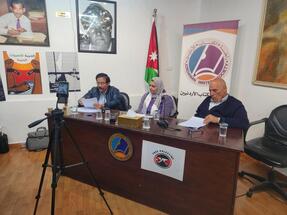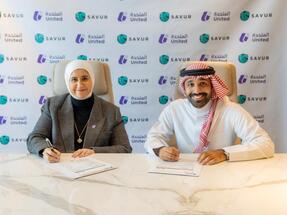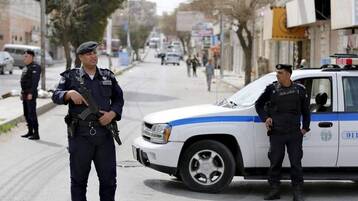-
Drought blamed for dozens of cow poisoning deaths in northwest Italy
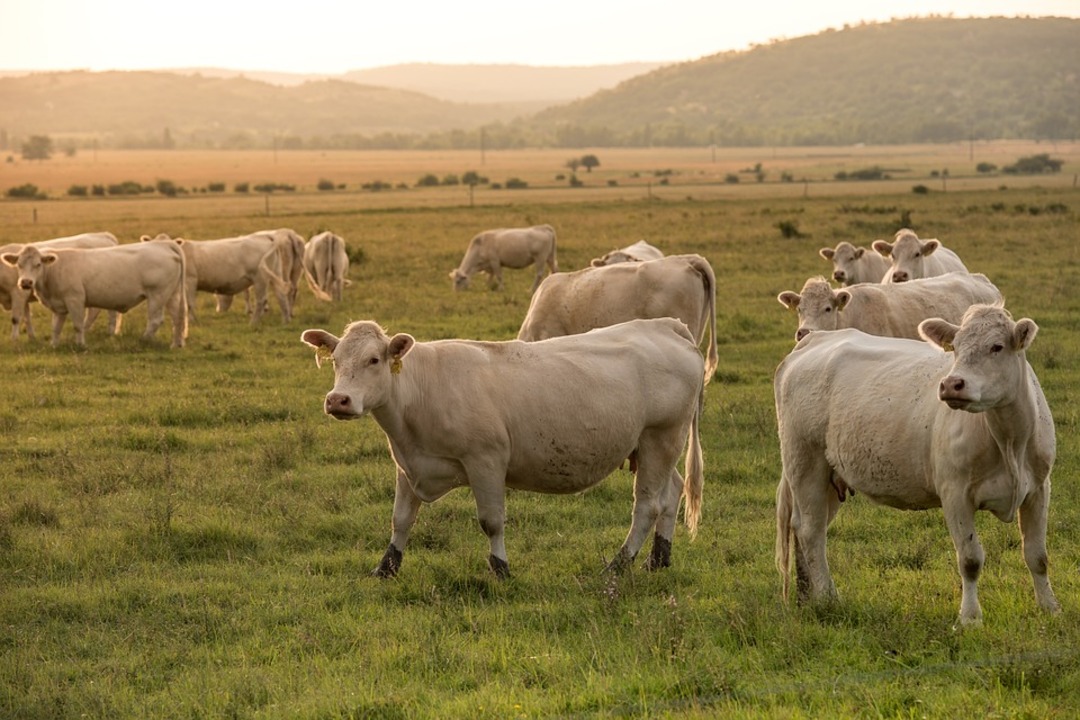
Experts blamed drought for an open-air morgue on an Italian farm earlier this month after around 50 cows were poisoned by young sorghum plants.
The Piedmontese cattle on the farm in Sommariva del Bosco, near Turin in northwest Italy, died suddenly due to acute prussic acid poisoning on August 6, according to the local IZS animal welfare body, according to the al-Arabiya English, the AFP reported,
This acid comes from dhurrin, which is naturally present in young sorghum plants, although not in the same high concentrations as those found in samples taken at the site.
“We suspect that the drought caused this very large quantity of dhurrin within the sorghum plants,” said Stefano Giantin, a vet at the Istituto Zooprofilattico Sperimentale for northwest Italy, who is on the case.
With normal growing plants, the amount of dhurrin would lower as the plants grew larger. But since the ongoing drought has stunted the growth of sorghum plants, dhurrin has concentrated inside them.
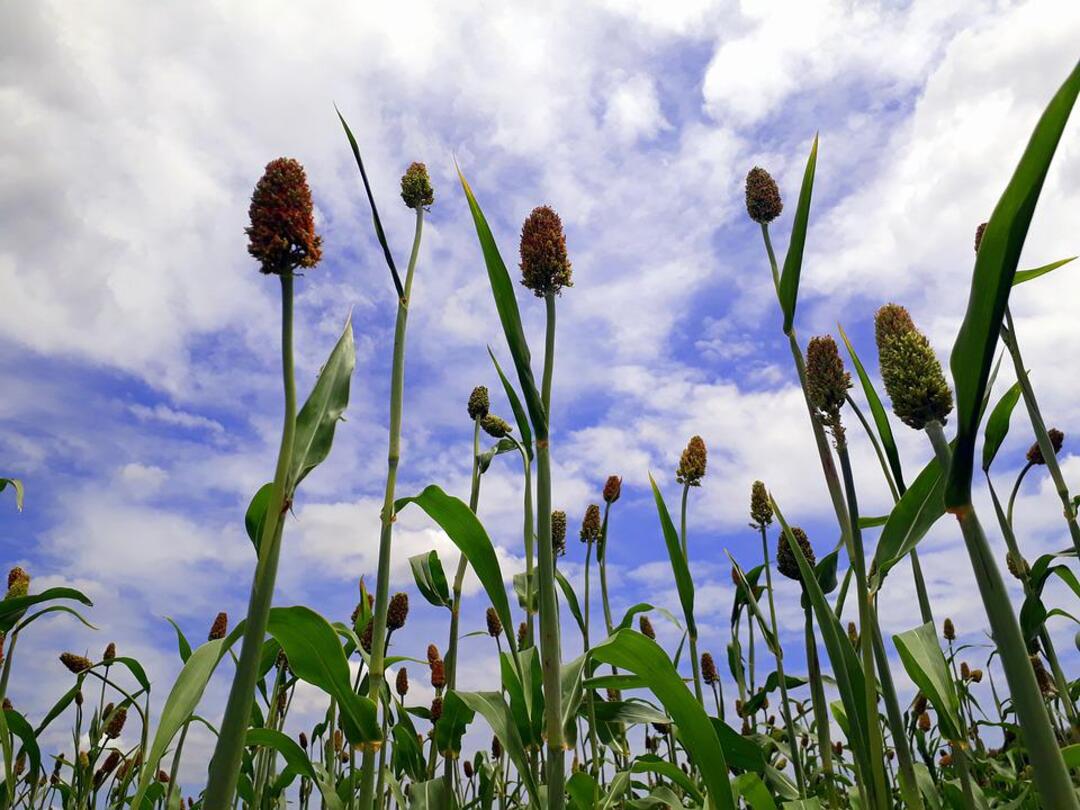
Prussic acid poisoning in cattle is quick and brutal, with symptoms occurring 10-15 minutes after ingestion and death some 15-30 minutes later. It causes respiratory, nervous and muscular disorders.
Dhurrin naturally occurs in sorghum, particularly in young shoots that use it as a defense against herbivores, but when digested, releases prussic acid, also known as hydrogen cyanide.
China takes action to alleviate drought as record heatwave continues
But “normally, it doesn’t cause death,” Giantin told AFP.
In the samples taken from Sommariva del Bosco, the concentration of dhurrin in the shoots was at an unusually high level, which Giantin said appeared to be the result of the drought that has hit Italy and much of Europe this summer.
A dose of more than 700 mg/kg of prussic acid is considered fatal for cattle, but the animals at Sommariva were found to have quantities of more than 900 mg/kg in their blood.
Italian cities of Verona and Pisa limit water usage amid drought
The only way of saving affected cows is to inject them with sodium thiosulfate, to neutralize the hydrogen cyanide.
With this, experts were able to save around 30 cows on August 11, when three more farms in Piedmont were hit by the same phenomenon – although not before 14 died.
Source: alarabiyaenglish
You May Also Like
Popular Posts
Caricature
BENEFIT Sponsors Gulf Uni...
- April 17, 2025
BENEFIT, the Kingdom’s innovator and leading company in Fintech and electronic financial transactions service, has announced its sponsorship of the “Innovation and Sustainable Technology Solutions Competition (GU - IST Solutions), hosted by Gulf University at its main campus.
This strategic sponsorship reflects BENEFIT’s active role in advancing technological innovation and fostering sustainable solutions to future challenges. It also seeks to empower Bahraini youth by enhancing their skills, capabilities, and competitiveness in innovation and solution development—contributing meaningfully to the broader goals of sustainable development across all sectors.
As part of BENEFIT’s active involvement in the competition, the company has announced that Hanan Abdulla Hasan, Senior Manager of Public Relations and Communication, will serve on the competition’s supervisory committee. Her upcoming participation reflects BENEFIT’s forward-looking commitment to championing academic and professional excellence.
Commenting on the occasion, Hanan Abdulla Hasan, Senior Manager of Public Relations and Communication at BENEFIT, said, “We are privileged to support this pioneering initiative, which aligns seamlessly with BENEFIT’s enduring commitment to fostering innovation and nurturing the potential of Bahrain’s youth. Our participation is rooted in a deep sense of social responsibility and a firm belief in the pivotal role of innovation in shaping a sustainable future. Through such platforms, we seek to empower the next generation with the knowledge, skills, and foresight required to develop impactful solutions that address future challenges, in line with the United Nations Sustainable Development Goals 2030.”
Dr. Aseel Al Ayash Dean of the College of Engineering in Gulf University commented, “We extend our sincere gratitude to BENEFIT for their generous sponsorship and support of the Innovation and Sustainable Technology Solutions Competition. This contribution plays an instrumental role in helping us achieve the strategic goals of this initiative, namely, cultivating a culture of innovation and sustainability, encouraging efforts that address the imperatives of sustainable development, and enhancing the practical and professional capabilities of our students and participants.”
The event will bring together a diverse spectrum of participants, including secondary school students, university undergraduates, engineers, industry professionals, entrepreneurs, academic researchers, and subject matter experts representing a wide range of disciplines.
The competition seeks to inspire participants to develop and present innovative, sustainable technologies aimed at addressing pressing environmental, social, and economic challenges. It encourages the formulation of business models that integrate advanced technological solutions with core principles of sustainability. Moreover, it serves as a platform for emerging leaders, entrepreneurs, and innovators to contribute to the advancement of the Sustainable Development Goals, promote the ethos of responsible technology, and demonstrate its transformative potential across various sectors.
Attendees will have the opportunity to view a series of project presentations submitted by participants, covering diverse areas such as eco-friendly product design, smart and sustainable innovations, renewable energy technologies, water conservation and management, waste minimisation and recycling, green architectural solutions, and sustainable transportation systems. Outstanding projects will be formally recognised and awarded at the conclusion of the event.
opinion
Report
ads
Newsletter
Subscribe to our mailing list to get the new updates!

